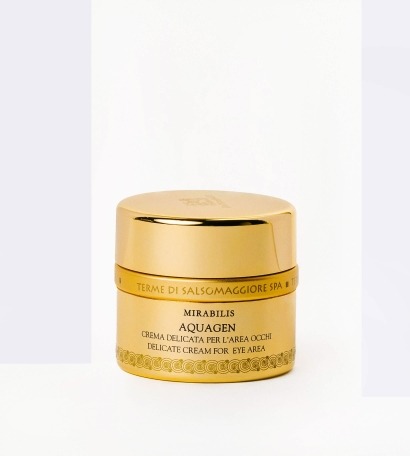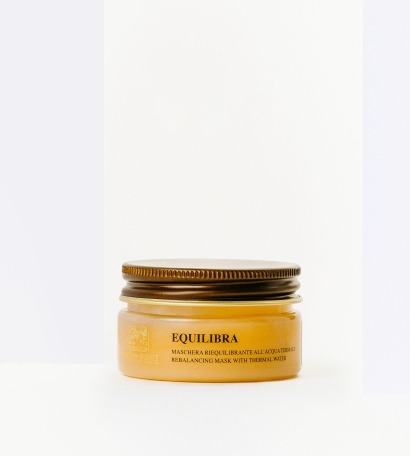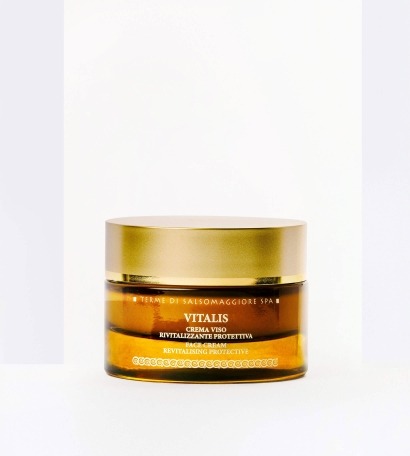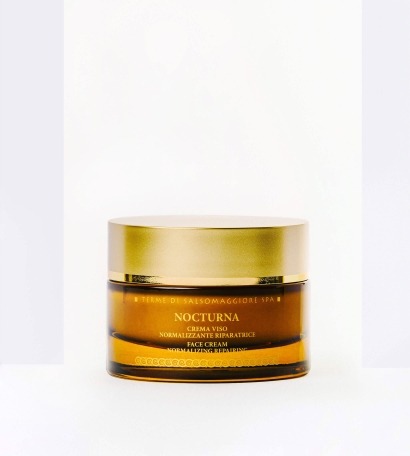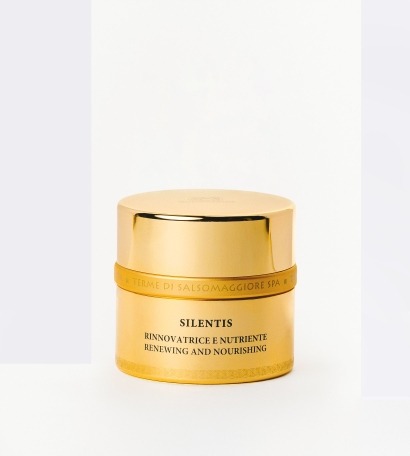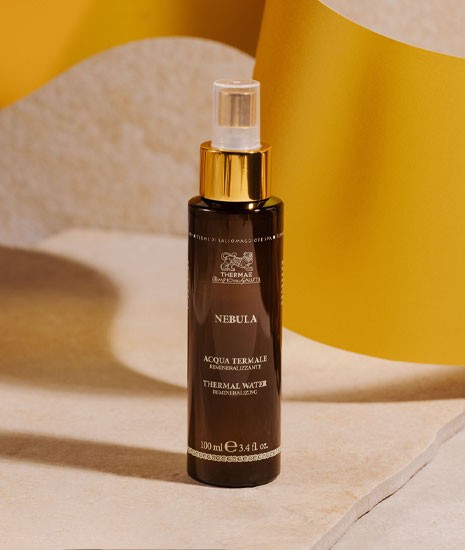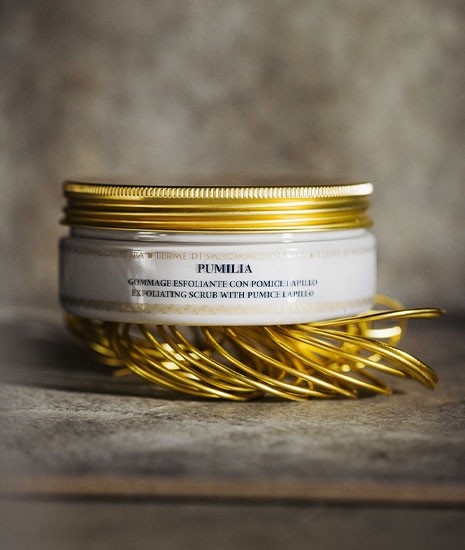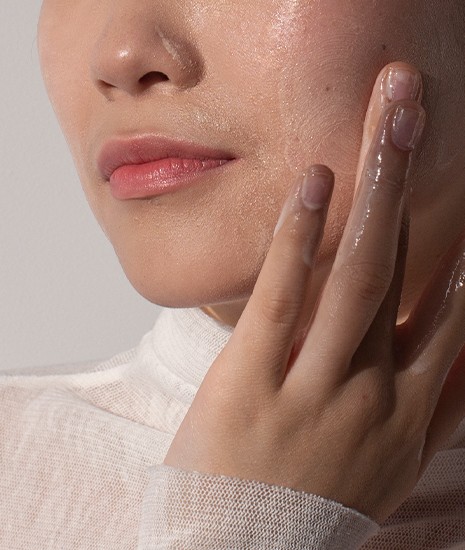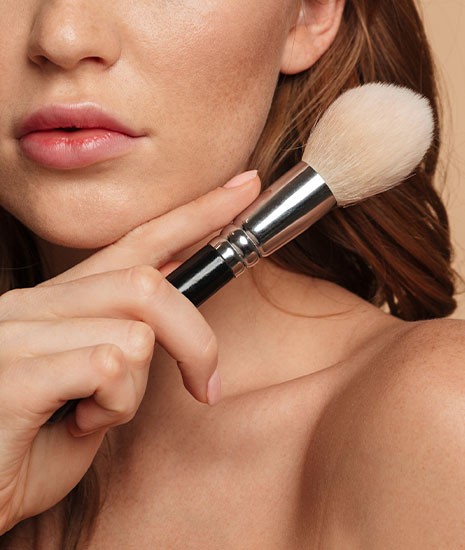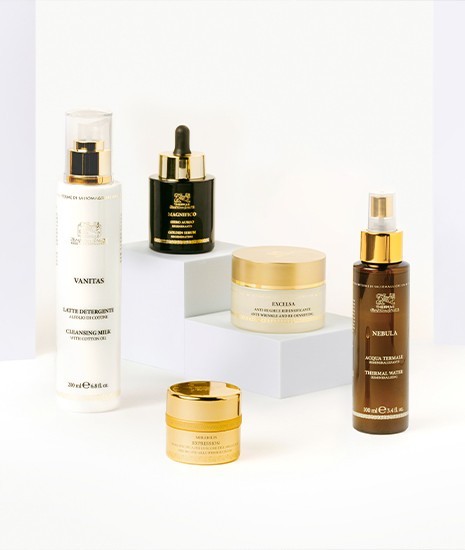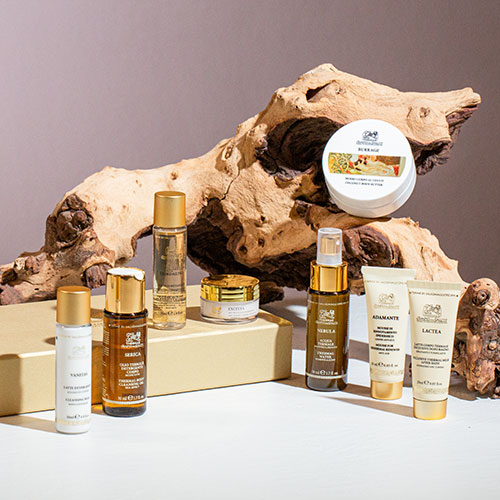
The benefits of Vitamin A for the skin of the face and the whole body
Vitamin A is one of the essential vitamins for the overall health of the body, but it is also particularly known for its benefits to the skin. This fat-soluble vitamin plays a crucial role in the repair and maintenance of the skin, helping to promote a bright, young and healthy appearance. Let's discover the benefits of Vitamin A for the skin of the face and the whole body and how it can be used to improve the health and appearance of the skin.
What is Vitamin A and what is it used for?
Vitamin A, a fat-soluble vitamin, plays a crucial role in various aspects of bodily functioning and is an irreplaceable ally for skin health, as it catalyzes cell regeneration and collagen production, two key processes that contribute to keeping the skin smooth and mitigating the appearance of wrinkles.
More precisely, the term "Vitamin A" refers to a group of compounds, both natural and synthetic, that share the biological properties of retinol, one of its most common forms. Its presence is essential in a multitude of physiological processes, making it an essential component for some of the vital functions of our body:
- Vision: Vitamin A is essential for the synthesis of rhodopsin, a protein that allows our eyes to adapt to varying light conditions, ensuring optimal vision even in poorly lit environments.
- Immune system: with its action, Vitamin A strengthens the body's barriers against infections, improving the overall immune response.
- Reproduction: supports the growth and development of the fetus, ensuring a healthy reproductive process.
- Growth: contributes significantly to the growth and development of cells and tissues, providing the necessary support for harmonious growth.
- Skin: promotes cell regeneration and, as anticipated, the production of collagen, an essential protein for giving elasticity and strength to the skin. This action contributes to improving the overall appearance and texture of the skin.
Types of Vitamin A: Retinol and carotenoids
Vitamin A comes in two main forms: retinol and carotenoids.
Retinol
Retinol represents the active form of Vitamin A and is primarily found in animal-based foods, such as liver, fish and eggs. Specifically, the term "Vitamin A" includes not only rRetinol but also its analogs, called retinoids. These compounds, both natural and synthetic, are known in over 1,500 different variants, all characterized by an antioxidant action. Among Retinol derivatives, retinyl palmitate is one of the most commonly used and is particularly valued for its ability to be converted into retinol once applied to the skin, offering similar benefits in terms of anti-aging and skincare, but with a lower potential for irritation.
In addition to its importance in nutrition, Retinol has gained considerable notoriety in the cosmetic industry. In fact, as a derivative of Vitamin A, it is frequently used in skincare products, including creams, serums and gels. The application of Retinol can:
- contribute to the reduction of wrinkles and fine lines
- increase skin elasticity and firmness
- improve the appearance of acne
- reduce sunspots and hyperpigmentation
- enhance skin hydration
Carotenoids
Carotenoids, on the other hand, are precursors of retinol and are predominantly found in plant-based foods, such as carrots, pumpkins and spinach. Their antioxidant function makes them fundamental in protecting cells from aging and degeneration caused by free radicals.
The benefits of Vitamin A for the skin
When discussing the benefits of Vitamin A for the skin, we are specifically referring to Retinol, an active form of this vitamin that plays a crucial role in skin health and appearance. Its benefits are numerous, with the most significant being:
- Cell regeneration: it encourages the formation of new cells, promoting skin renewal and pushing damaged and dead cells to the surface. This process helps to visibly reduce the appearance of wrinkles and fine lines, making the skin of the face and body more compact, youthful and elastic.
- Protection and defense: in addition to offering protection against ultraviolet ray damage, Vitamin A plays an anti-inflammatory role, protecting the skin from daily external aggressions such as smog, secondhand smoke, germs, and bacteria. This function is crucial in preventing dermatological conditions like acne and psoriasis. Moreover, it reduces the risk of sunburn and, consequently, the danger of skin cancer.
- Acne treatment and other skin diseases: thanks to its ability to regulate desquamation and sebum production, Vitamin A acts directly on the causes of acne, including the development of the bacteria associated with this skin condition.
- Hydration: Vitamin A not only stimulates the production of natural moisturizing substances, such as hyaluronic acid, but also prevents the loss of fluids from the skin, ensuring excellent hydration and preventing dryness and flaking.
- Antioxidant and Anti-Aging: similar to Vitamin E, Vitamin A has a powerful antioxidant action, countering the harmful activity of free radicals. This function is essential in slowing down the signs of aging.
How Retinol works on the skin
Retinol, an active form of Vitamin A, interacts with the skin at a cellular level to promote a range of visible and structural benefits, making it a valuable ingredient in dermatological care and skincare. Here's how it works:
- Accelerates cell turnover: Retinol binds to specific receptors on the surface of skin cells, activating pathways that lead to the production of new cells and the shedding of old ones.
- Gentle exfoliation: as a result of the previous function, Retinol acts as a mild exfoliant, smoothing the skin’s surface and improving overall texture. This helps reduce dark spots and hyperpigmentation, resulting in a more even complexion.
- Stimulates collagen production: Collagen is an essential protein that gives skin its structure and firmness. As we age, collagen production slows, leading to the appearance of wrinkles and loss of elasticity. Retinol helps counter these signs of aging, keeping the skin firmer and more youthful.
What happens in case of Vitamin A deficiency in the Skin?
A deficiency of Vitamin A - or, more precisely, Retinol -can lead to a series of skin problems, such as:
- Dryness and flaking: the skin loses its natural level of hydration, becoming dry, rough and scaly, giving it a dull and less youthful appearance.
- Night blindness: people who are deficient may develop a condition that involves difficulty in seeing in low light conditions.
- Xerosis disease: this is a condition where the skin becomes extremely dry, rough and scaly. Often, xerosis can cause itching and discomfort, further aggravating the skin's condition.
- Increased susceptibility to infections: a deficiency can make the body more vulnerable to infections, as the skin's natural barriers are weakened.
It is important to note that, while a deficiency of Vitamin A can lead to these problems, an excess of the same vitamin is not without consequences. An overdose can cause symptoms such as skin irritation and redness.
How to incorporate Vitamin A in the form of Retinol into your Skincare Routine
Often, the intake of Vitamin A through diet is not enough and, in these cases, topical application can make a difference.
There are various solutions for applying Vitamin A to the skin of the face and body. Among these, we find creams, serums and gels with derivatives like retinol, known for its effectiveness in improving the skin by reducing wrinkles and imperfections. Other products combine Vitamin A derivatives with active ingredients, such as plant extracts and Vitamin E, thus ensuring complete protection. These products not only counteract aging but also improve the overall appearance of the skin, especially for those suffering from acne or other similar skin diseases, making it more hydrated and luminous.
In addition to anti-aging benefits, Vitamin A also protects against UV ray damage. It is no coincidence that many sunscreen products include it in their formulation.
For those who have never tried such products, it is advisable to start with low-concentration formulations, allowing the skin to adapt and minimize the risk of irritation. Gradually, it is possible to increase the concentration to obtain all the benefits offered.
When and how to use Retinol in your Skincare Routine
Retinol is a powerful ally in skincare, but to achieve the best results, it's important to know when and how to use it. Here are some tips:
- Start gradually: it’s advisable to begin with a low concentration, applying it 2-3 times a week. This allows the skin to gradually adapt, reducing the risk of irritation. Over time, you can increase the frequency to daily use, always monitoring your skin’s response.
- Apply at night: it is recommended to use Retinol in the evening, as it can make the skin more sensitive to sunlight. Additionally, the skin regenerates during sleep, allowing Retinol to work optimally without interference from UV rays.
- Protect your skin during the day: since Retinol can increase sensitivity to UV rays, it’s essential to use sunscreen during the day. Choose SPF 30 or higher and reapply regularly, especially if spending extended time outdoors.
- Avoid irritating combinations: Retinol can be irritating when combined with other strong ingredients, such as exfoliating acids (e.g., glycolic or salicylic acid). If you wish to use both, alternate their application days or consult a dermatologist for personalized advice. Alternatively, use Retinol derivatives, such as Retinyl, which have a lower potential for irritation.
Retinol's benefits are not immediate. It can take several weeks of consistent use to see noticeable improvements. Consistency and correct usage are key!
Thermae products containing Vitamin A and Its derivatives
Vitamin A is at the heart of some Thermae products to help combat the signs of aging and photoaging. Thermal cosmetics containing this vitamin and other derivatives, such as Retinyl (a less aggressive form of Retinol), can come in various types:
- Aquagen Eye Contour Cream: which not only deeply hydrates the delicate skin of the area but also promotes the production of collagen and elastin. To be used daily, morning and evening, it is perfect for those looking for a defense against dark circles and external agents.
- Equilibra Rebalancing Mask: with a dual action, it hydrates without weighing down and reduces imperfections, especially in the T-zone, giving visibly more balanced skin.
- Vitalis Revitalizing Day Face Cream: a balm of vitality for mature skin that not only protects and repairs but also stimulates and illuminates.
- Nocturna Night Repair Face Cream: which repairs, nourishes and envelops the skin during sleep with notes of vanilla, waking you up with regenerated and nourished skin.
- Silentis Renewing Day Face Cream: which nourishes, regenerates, and protects every day, offering your face a barrier against external agents and the signs of time.
Vitamin A and Retinol: allies for body and skin
The benefits of Vitamin A are reflected in overall body health, but thanks to Retinol, it becomes a true beauty ally for the skin. Its ability to counteract the signs of aging, fight imperfections and protect from external damage makes it an indispensable ingredient in many cosmetic formulas. The range of Thermae Il Tempio della Salute products makes the most of these properties, offering specific solutions for different needs. With our products, incorporating Vitamin A and Retinol into your beauty routine has never been so easy and rewarding.


